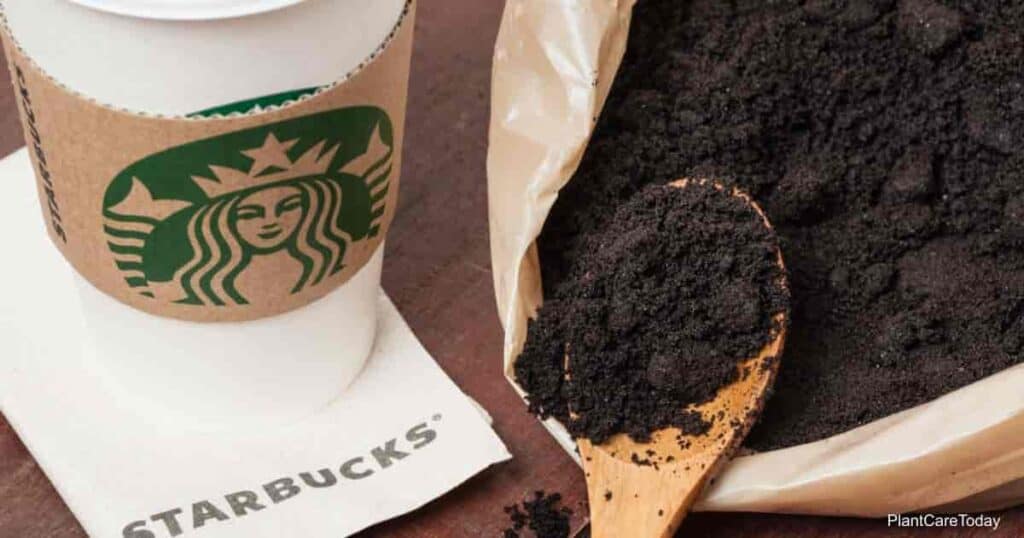Gardening beautifully melds both art and science. Even the most seasoned gardeners continuously search for innovative tips to enhance their gardens.
We have 15 top gardening hacks to help your garden thrive, whether caring for a small plot or a sprawling backyard oasis. These simple yet effective techniques can transform your gardening experience.
Learn how everyday household items can can help you grow healthy, beautiful plants. Try these clever hacks and watch your garden thrive like never before!
#1 – Epsom Salt for Greener Leaves

Recipe: Dissolve 1 tablespoon of Epsom salt in a gallon of water. Use this solution to water your plants once a month.
Why It Works: Epsom salt provides magnesium, a vital nutrient for plants, which helps in chlorophyll production and leads to greener leaves. However, it’s important to note that not all plants require extra magnesium, and overuse can harm some plants. More on Epsom Salt for Greener Leaves
#2 – Hydrogen Peroxide for Dying Plants

Recipe: Mix 1 teaspoon of hydrogen peroxide in a cup of water. Use this solution to water the base of the plant.
Why It Works: Hydrogen peroxide releases oxygen into the soil, which can help aerate it and promote root health. It can also have mild antibacterial properties, which may help with root rot caused by overwatering. More on Hydrogen Peroxide for Dying Plants
#3 – Baking Soda for Tomato Disease

Recipe: Mix 1 tablespoon of baking soda with 1 gallon of water and a few drops of liquid soap. Spray this solution on tomato plants weekly.
Why It Works: Baking soda can help prevent fungal diseases like powdery mildew by creating an alkaline environment that is less favorable for fungi. However, it should be used cautiously as it can alter soil pH. More on Baking Soda in the Garden
#4 – Cinnamon for Fungus Gnats Prevention

Recipe: Sprinkle ground cinnamon on the soil surface of your potted plants.
Why It Works: Cinnamon has antifungal properties that can help prevent the growth of fungus, which is a food source for fungus gnats. Reducing fungus can help control gnat populations. More on using Cinnamon for Fungus Gnats
#5 – Coffee Grounds for Acid-Loving Plants

Recipe: Spread used coffee grounds around the base of acid-loving plants like blueberries and azaleas.
Why It Works: Coffee grounds can slightly acidify the soil, which benefits plants that thrive in acidic conditions. They also add organic matter, improving soil structure and nutrient content. More on Coffee Grounds for Acid-Loving Plants
#6 – Aspirin for Plant Immunity
Recipe: Dissolve 1 aspirin tablet in a gallon of water. Use this solution to water your plants every few weeks.
Why It Works: Aspirin contains salicylic acid, which can mimic plant hormones that trigger immune responses, potentially helping plants resist diseases and stress.
#7 – Banana Peels for Nutrient-Rich Fertilizer

Recipe: Chop banana peels and bury them in the soil near the base of plants.
Why It Works: Banana peels decompose and release potassium and phosphorus, which are essential nutrients that promote healthy plant growth and flowering. More on Banana Peels for Nutrient-Rich Fertilizer
#8 – Milk for Powdery Mildew
Recipe: Mix 1 part milk with 2 parts water and spray it on plants affected by powdery mildew.
Why It Works: Milk’s proteins can act as a natural fungicide when exposed to sunlight, helping control powdery mildew. More on Milk for Powdery Mildew
#9 – Vinegar for Weed Control
Recipe: Spray undiluted white vinegar directly onto weeds on a sunny day.
Why It Works: The acetic acid in vinegar acts as a natural herbicide, drying out the leaves of weeds and ultimately killing them. It is most effective on young weeds and should be used carefully to avoid damaging desirable plants. More on Vinegar for Weed Control
#10 – Beer for Slug Traps

Recipe: Pour beer into a shallow dish and place it in the garden near slug-prone plants.
Why It Works: Slugs are attracted to the yeast in beer. They will crawl into the dish and drown, reducing their population in your garden.
#11 – Rice Water for Healthy Roots
Recipe: Use the water from rinsing rice to water your plants.
Why It Works: Rice water contains starches and some nutrients that can promote root growth and overall plant health. However, its effectiveness can vary based on the plant and soil conditions.
#12 – Sugar for Pest Control
Recipe: Mix 1 tablespoon of sugar with a gallon of water and spray it on plants infested with aphids.
Why It Works: Sugar water can attract beneficial insects like ladybugs, which prey on aphids, helping to naturally control pest populations. However, this method’s effectiveness can be inconsistent.
#13 – Chamomile Tea for Seedlings
Recipe: Brew chamomile tea and let it cool. Use it to water seedlings.
Why It Works: Chamomile tea has antifungal properties that can help prevent damping-off disease, which is common in seedlings.
#14 – Honey for Rooting Cuttings
Recipe: Dip the cut end of a plant cutting in honey before planting it in soil.
Why It Works: Honey has natural antiseptic and antifungal properties that can protect cuttings from infection and promote root growth. However, it is not a rooting hormone and should be used alongside proper rooting techniques.
#15 – Eggshells for Calcium Boost

Recipe: Rinse and dry eggshells, then crush them into a fine powder. Sprinkle this powder around the base of your plants or mix it into the soil.
Why It Works: Eggshells are a great source of calcium, which is essential for cell wall structure in plants. This helps prevent issues like blossom end rot in tomatoes and peppers. However, eggshells decompose slowly, so their effects may take time to manifest. More on Eggshells for Calcium Boost
These gardening hacks are generally effective, but it’s important to consider the specific needs of your plants and garden conditions before applying them.
